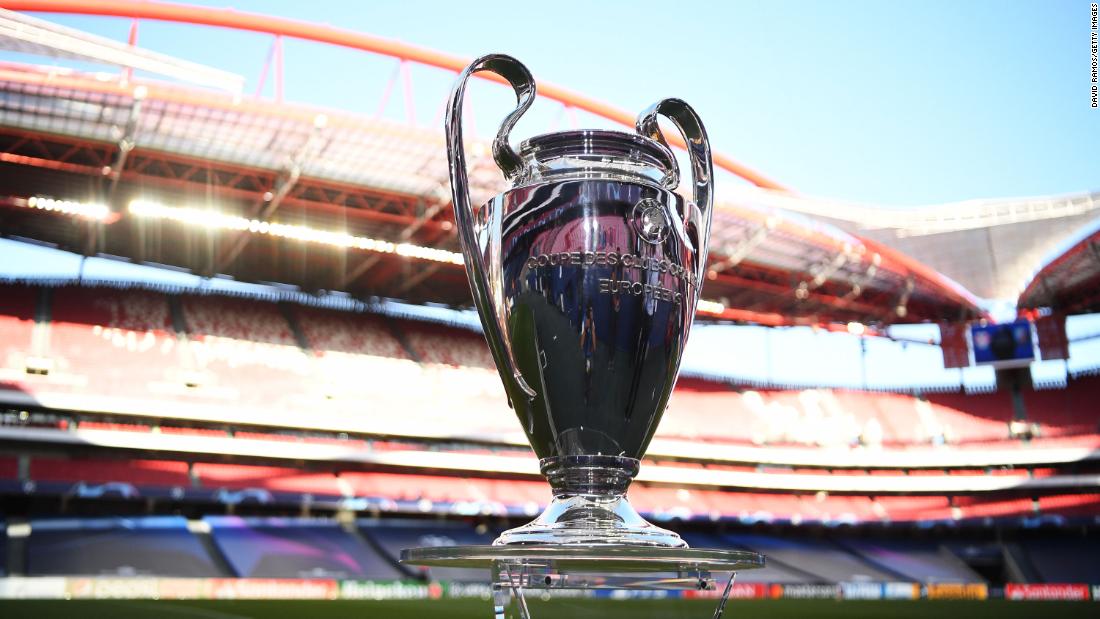Sorry, nothing in cart.
UEFA Champions Leagues: For Qatar and UAE investment in soccer has been s’potentially worth its weight in golds’
UEFA Champions League: For Qatar and UAE investment in soccer has been ‘potentially worth its weight in gold’
Five years have passed since Paris Saint-Germain and Manchester City last met in the Champions League, but both teams’ quests for European silverware endures.
That’s despite abundant success in their domestic leagues and the continued backing of wealthy owners — PSG’s from Qatar and City’s from the United Arab Emirates.
The investment into both clubs earned their 2016 meeting the moniker “El Cashico,” and the sides met again in Paris on Wednesday in a bid to gain a place in this year’s Champions League final. City came from behind to win the first leg 2-1 with goals from Kevin de Bruyne and Riyad Mahrez.
As in 2016, the two clubs continue to boast star-studded line-ups — a common theme over the past decade.
PSG spent more than $500 million on transfers across the two seasons they signed Neymar and Kylian Mbappé — star players who continue to lead the club’s attack — while City has also spent generously when it comes to transfer fees — more than $2.3 billion between 2008, when Abu Dhabi United Group (ADUG) bought the club, and 2019.
The arrival of these owners has undoubtedly changed both teams’ fortunes. City is on course to win a fifth Premier League title under the ownership of ADUG, a private investment company owned by Sheikh Mansour bin Zayed Al Nahyan, while PSG has won seven of the last eight league titles in France after Qatar Sports Investments purchased the club in 2011.

But neither has been able to match that domestic success with European silverware. The Champions League, a competition comprising of teams from across Europe, is considered the pinnacle of club football, and last year’s champion Bayern Munich earned €19 million ($23 million) from winning the final alone.
“It’s quite remarkable that we’ve had now effectively a decade of this kind of investment into PSG and Manchester City and so far, neither of them has won the Champions League,” Kristian Coates Ulrichsen, fellow for the Middle East at Rice University’s Baker Institute, tells CNN Sport.
“In future we might look back and think: What took them so long?” Ulrichsen adds. “Whoever wins this match, if they go on to win the Champions League, I think this could be one of those turning points that only becomes fully apparent after the fact.”
Competing in the Champions League semifinals for the second time since ADUG’s takeover, victory in this year’s competition would be a significant landmark for City’s owners.
Their ambitious project has seen the club become the centerpiece of City Football Group, a global network of associated clubs established by ADUG in 2013, and investment has funded a new academy stadium and training facilities around the Etihad Stadium in east Manchester.


“What both countries have done is to build visibility, to build a profile, to build a reputation, to establish associations in the minds of people across the world with the countries through football,” Simon Chadwick, director of the Centre for Eurasian Sport Industry at Emlyon Business School in France, tells CNN Sport.
Over time, investment yields rewards. Chadwick adds: “The profile, the image, the reputation, the nation branding — this is all part of the ROI, the return on investment, from spending on football in the first place.
“Connected to that obviously is the soft power effect. And the soft power effect means that people outside the region will look towards the region in a more positive way and will be attracted by what the region is trying to do … that has an impact upon diplomacy as well.”
Also notable is the political rivalry between Qatar and the UAE. Earlier this year, the UAE, along with Saudi Arabia, Bahrain and Egypt, agreed to restore diplomatic relations with Qatar and put an end to a boycott dating back to mid-2017.
“They reconciled in January, but there are still a lot of needles between the two countries,” Neil Quilliam, associate fellow with the Middle East and North Africa Programme at the think tank Chatham House, tells CNN Sport.
“The competition between the two really plays out literally on the football field. They’ve taken it from a real competition in the region — where one state is blockading another — to having this semifinal where you’ve got both sides facing off, essentially, for a place in the final. There’s some real drama and politics to that.”

Attention can now turn to the final stages of this season’s Champions League, with Real Madrid and Chelsea playing out a 1-1 draw in the first semifinal on Tuesday.
Having reached the final last year, PSG, spearheaded by the brilliant Mbappé, has defeated Barcelona and Bayern Munich to reach the Champions League final four, while City, which won the EFL Cup on Sunday and is close to wrapping up the Premier League title, has so far overcome Borussia Dortmund and Borussia Mönchengladbach in the knockout stages.
On Wednesday, one club’s ownership will take a step towards winning the trophy both have chased for the past decade.


Leave a Reply